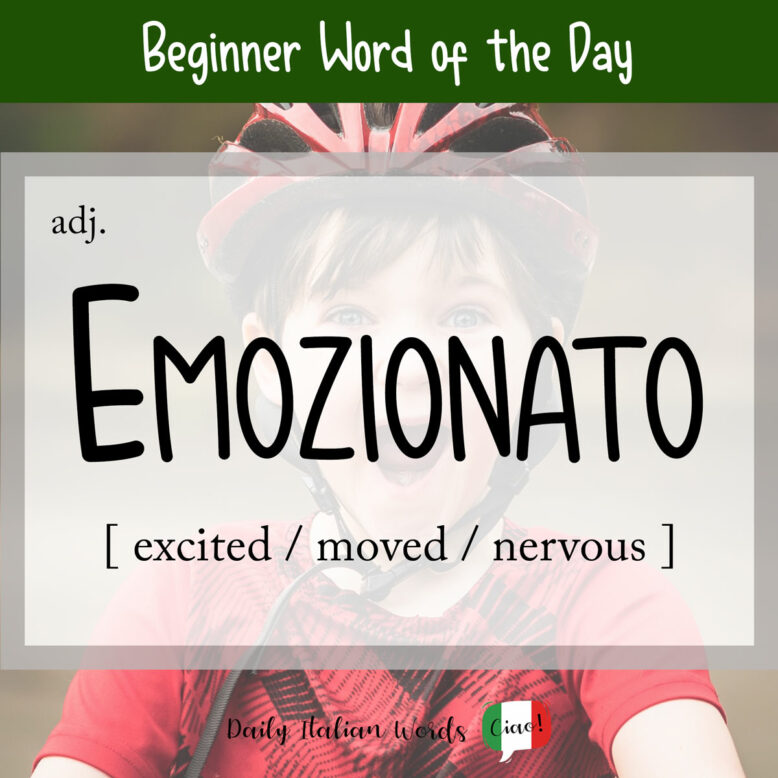Emozionato is one of those adjectives in Italian whose translation varies depending on the context in which it is used. However, in every case, it denotes a state of emotional upheaval, be it positive or negative.

Used in a positive sense, it can translate as either excited or moved. For example:
Luigi è molto emozionato per la partita di stasera.
Luigi is very excited about tonight’s game.
L’attrice era visibilmente emozionata durante la premiazione.
The actress was visibly moved during the award ceremony.

In a negative sense, it is closer in meaning to nervous or worked-up.
È talmente emozionato per l’esame di domani che non riesce a stare fermo.
He’s so worked up about tomorrow’s exam that he can’t stay still.
As with the vast majority of adjectives, the ending changes in accordance with the gender and / or plurality of the subject.
- emozionato = masculine, singular (e.g. un uomo emozionato = an excited / moved / nervous man)
- emozionata = feminine, singular (e.g. una persona emozionata = an excited / moved / nervous person)
- emozionati = masculine, plural (e.g. dei canditati emozionati = excited / moved / nervous candidates)
- emozionate = feminine, plural (e.g. delle ragazze emozionate = excited / moved / nervous girls)
The word derives from the verbs emozionare (to move / to touch) and emozionarsi (to be moved / to be touched).

Heather Broster is a graduate with honours in linguistics from the University of Western Ontario. She is an aspiring polyglot, proficient in English and Italian, as well as Japanese, Welsh, and French to varying degrees of fluency. Originally from Toronto, Heather has resided in various countries, notably Italy for a period of six years. Her primary focus lies in the fields of language acquisition, education, and bilingual instruction.


